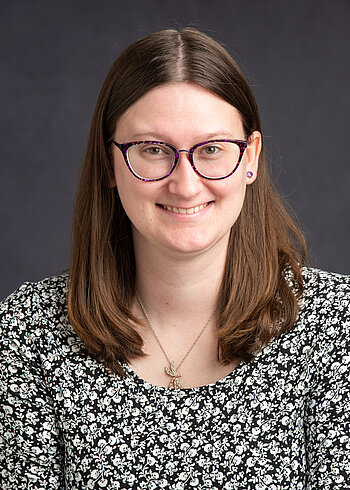Leanna McWood, PhD

Assistant Professor
Phone (701) 231-1826
Email Leanna.McWood@ndsu.edu
Developmental Science Program Vita
Vita
Education
Bachelor of Arts in Psychology
Miami University
Oxford, OH
Master of Sciences in Human Development and Family Science
Auburn University
Auburn, AL
Doctorate of Philosphy in Human Development and Family Science
Auburn University
Auburn, AL
Classes Taught
HDFS 340: Adolescent Development
HDFS 813: Social and Emotional Development Across the Lifespan
Core Area
Adolescent Development; Contextual Influences
Research Interests
The goal of my research agenda is to examine developmental processes in relational contexts (e.g., peer and family) and identify potential risk or resilience factors that promote positive development (mental and physical health). One key relational context I study is extracurricular involvement, particularly under what conditions organized activities are beneficial or risky.
Ongoing Research
I have several ongoing research projects; 1) examining extracurricular involvement and adjustment, including sleep; 2) developing best practices for a peer mentoring program that partners adolescents with disabilities with peer mentors without disabilities; and 3) meta-analyses focused on coping processes within relational contexts.
Research Keywords
extracurricular involvement, sleep, health, positive youth development, peer and family relationships, contextual influences, peer mentoring, disability
Selected publications
Gillis, B., McWood, L. M., Brigham, E. F., Hinnant, J. B., & El-Sheikh, M. (2023) Family income as a moderator of relations between sleep and physical health during adolescence. Sleep Health, 9(6), 868-875.
McWood, L. M., Erath, S. A., & El-Sheikh, M. (2022). Longitudinal associations between coping and peer victimization: Moderation by gender and initial peer victimization. Social Development, 32(1), 117-134. doi.org/10.1111/sode.12623
McWood, L. M., Erath, S. A., Lansford, J. E., Pettit, G. S., Bates, J. E., & Dodge, K. A. (2021). Organized activity involvement predicts adolescent internalizing and externalizing problems. Journal of Youth and Adolescence, 50, 2181-2193. https://doi.org/10.1007/s10964-021-01491-3


